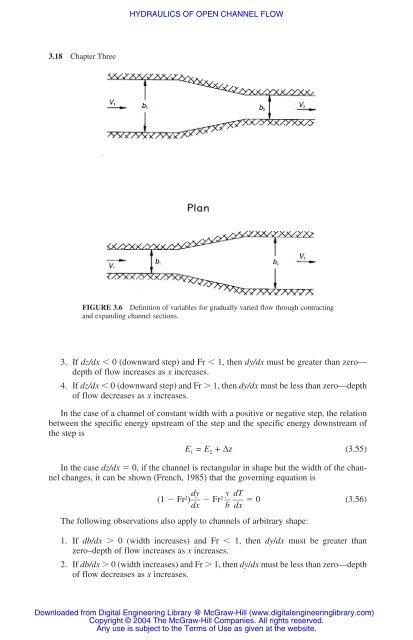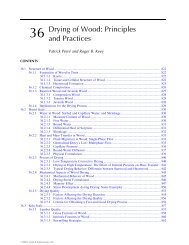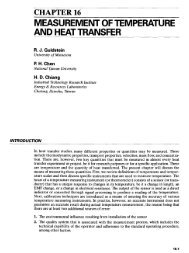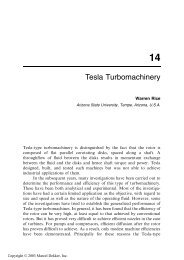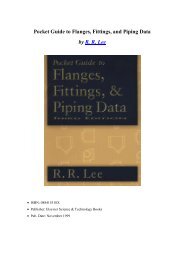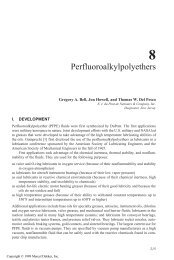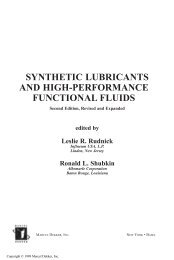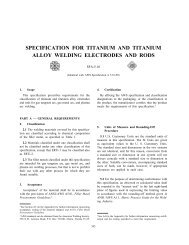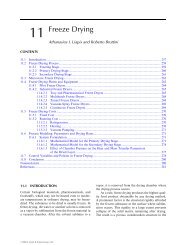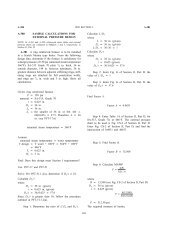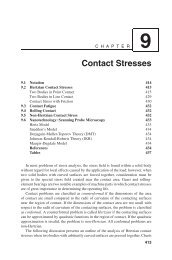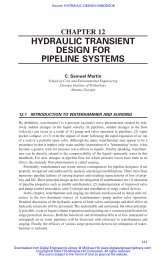chapter 3 hydraulics of open channel flow
chapter 3 hydraulics of open channel flow
chapter 3 hydraulics of open channel flow
You also want an ePaper? Increase the reach of your titles
YUMPU automatically turns print PDFs into web optimized ePapers that Google loves.
3.18 Chapter Three<br />
HYDRAULICS OF OPEN CHANNEL FLOW<br />
FIGURE 3.6 Definition <strong>of</strong> variables for gradually varied <strong>flow</strong> through contracting<br />
and expanding <strong>channel</strong> sections.<br />
3. If dz/dx � 0 (downward step) and Fr � 1, then dy/dx must be greater than zero—<br />
depth <strong>of</strong> <strong>flow</strong> increases as x increases.<br />
4. If dz/dx � 0 (downward step) and Fr � 1, then dy/dx must be less than zero—depth<br />
<strong>of</strong> <strong>flow</strong> decreases as x increases.<br />
In the case <strong>of</strong> a <strong>channel</strong> <strong>of</strong> constant width with a positive or negative step, the relation<br />
between the specific energy upstream <strong>of</strong> the step and the specific energy downstream <strong>of</strong><br />
the step is<br />
E1 =E2 + ∆z (3.55)<br />
In the case dz/dx � 0, if the <strong>channel</strong> is rectangular in shape but the width <strong>of</strong> the <strong>channel</strong><br />
changes, it can be shown (French, 1985) that the governing equation is<br />
(1 � Fr2 )� dy<br />
� � Fr<br />
dx<br />
2 y dT<br />
�� �� � 0 (3.56)<br />
b dx<br />
The following observations also apply to <strong>channel</strong>s <strong>of</strong> arbitrary shape:<br />
1. If db/dx � 0 (width increases) and Fr � 1, then dy/dx must be greater than<br />
zero–depth <strong>of</strong> <strong>flow</strong> increases as x increases.<br />
2. If db/dx � 0 (width increases) and Fr � 1, then dy/dx must be less than zero—depth<br />
<strong>of</strong> <strong>flow</strong> decreases as x increases.<br />
Downloaded from Digital Engineering Library @ McGraw-Hill (www.digitalengineeringlibrary.com)<br />
Copyright © 2004 The McGraw-Hill Companies. All rights reserved.<br />
Any use is subject to the Terms <strong>of</strong> Use as given at the website.


